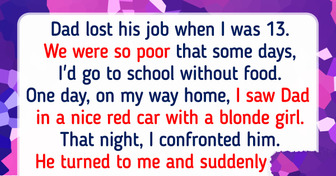sad :(
Why a Parent’s Affection Is So Important for Kids to Become Healthy Adults
Much has been said over the years about the best methods or ways of parenting, about what to do or not to do, and about how beneficial or counterproductive certain things can be. The fact is that attachment, that is, the creation of a solid and affectionate bond with our children, is not just a requirement, but actually a necessity for them, as well as for us as parents.
Bright Side wanted to show you the benefits and importance of giving our children the care and love they need.
What we understand by attachment
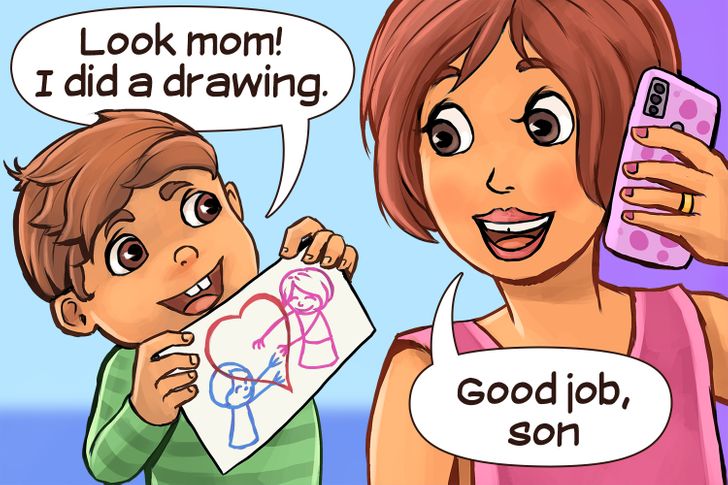
Even though attachment is of critical importance in the parent-child relationship, people tend to overlook it and even underestimate it. John Bowlby, an English psychoanalyst, psychologist, and psychiatrist, was concerned about child development. He took an interest in the matter and his research led him to develop what is known today as the attachment theory. According to Dr. Bowlby, humans are constantly seeking to verify and reaffirm this type of bond through specific behaviors. It’s a way of making sure that you’re still close to people you care about and to keep that relationship updated. Attachment is basically expressed through specific actions that confirm the existence of that proximity you feel with someone. The result is an emotional bond between 2 people that lasts and an invaluable psychological connection.
In the specific case of attachment developed between mother and child, the term refers more to what the child does to make sure that his or her mother spends time with them, to know that they can count on her, to feel that they are not alone, and to sense that there is someone to take care of them and protect them.
A very important bond to develop
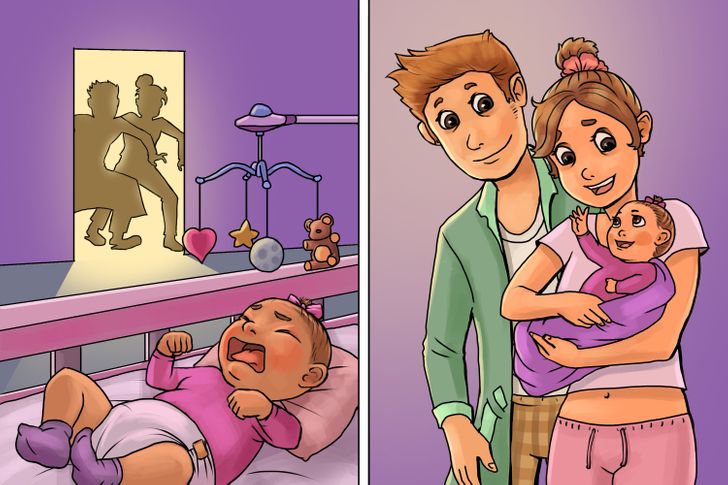
As we mentioned before, attachment has sometimes been underestimated and it has even been considered unnecessary or counterproductive. However, the fact of the matter is that there is no evidence to indicate that thought. In fact, it’s the opposite. The importance of this bond, and of contact, closeness, attention to their requests, and care has been shown to have positive repercussions in terms of the emotional and psychological development of children.
The existence of attachment with parents provides not only physical security, but also emotional security. In a way, it can be understood as the certainty of counting on someone and knowing that this person will be there for us unconditionally. It’s a way of feeling loved and accepted no matter what happens and, also, of knowing you will always find protection in these people. That feeling is a source of confidence for children to explore the world, relate to others, and learn freely. Their freedom to explore the world is closely related to their insecurities, stress regulation, and capacity for adaptability. In addition, a stable situation in this sense, will make them more mentally and psychologically stable when they grow up and finally become adults.
Depending on the child’s personal circumstances and social situation, as well as the existent or non-existent relationship with their parents and their attitude toward their child, Bowlby found and proposed 4 types of attachment.
1. Secure attachment
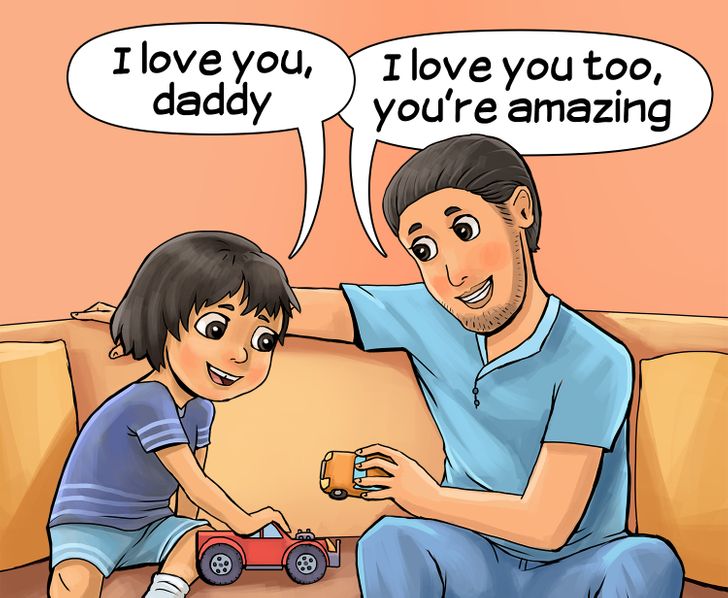
This type of attachment is a way of proving that parents and children share an affectionate and close relationship. When there is this type of attachment, a child feels loved, protected, and cared for. That, in turn, allows him or her to develop a healthy and stable relationship with other people around them or her. Likewise, children who are raised with this type of bond have more self-confidence and self-esteem, so they feel more secure when interacting with others. This type of confidence is a distinctive trait that lasts all the way up through adulthood, which also allows them to achieve lasting relationships without a fear of being abandoned, for example.
2. Anxious-Ambivalent Attachment
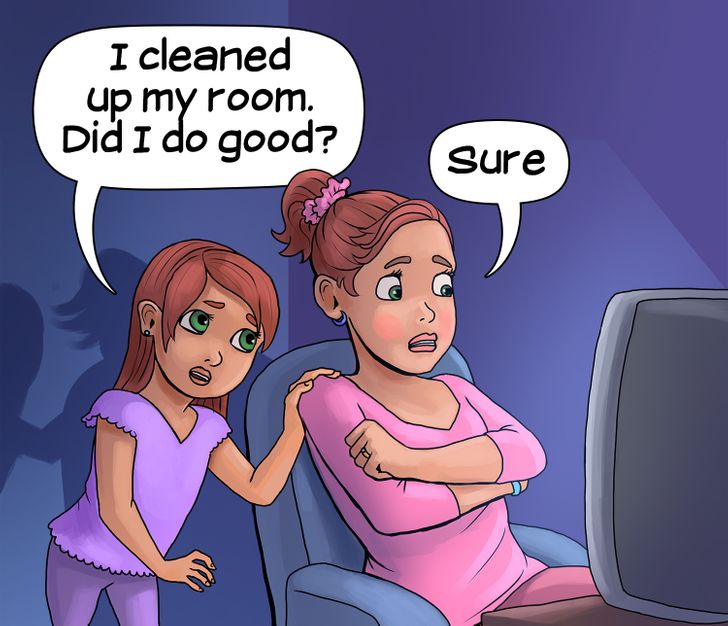
When the relationship is not as close or continually oscillates between adult nurturing and lack of attention, children tend to constantly seek approval from their role models in an attempt to replace that closeness and love that should be given to them by their parents. Children who grow up with this type of attachment tend to be more insecure, and very often have a low self-esteem and suffer from a fear of abandonment. They’re also often afraid of exploring the world. These children are likely to grow up to become emotionally dependent on others and have difficulties in their personal relationships because they do not feel loved.
3. Avoidant Attachment
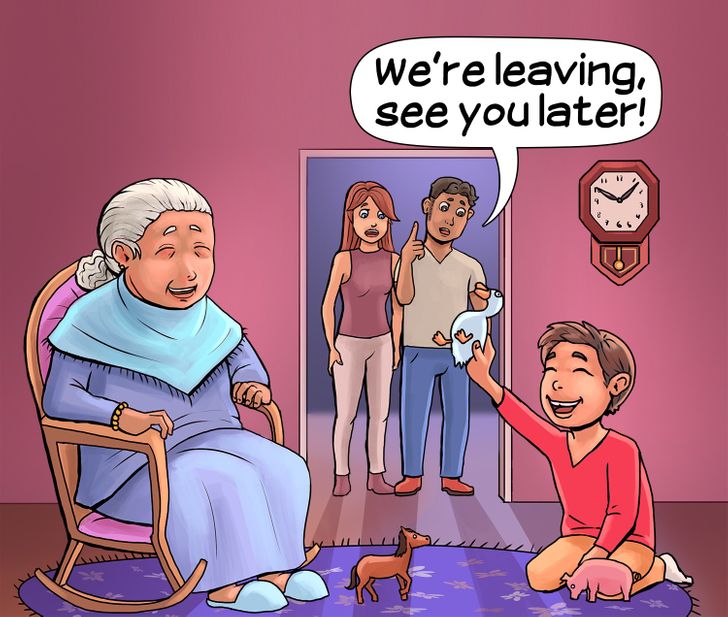
In cases in which the people who should be attachment figures do not provide the necessary care to their child, he or she tends to look for solutions by him or herself. That means that kids learn to cope with that lack of affection and, in a way, they become self-sufficient. However, the price they pay for that is an emotional alienation from their parents, which can gradually lead to, for example, babies not crying when their parents leave.
You might be inclined to think that this is great and that this type of behavior is a sign of security, but actually it’s not. It’s something that kids learn out of necessity, but not for pleasure, which creates a great deal of suffering in the child, as well as high levels of stress and self-esteem problems. And, as a child begins to struggle with expressing their feelings, they may one day find it hard to understand their emotions and those of others, and start to avoid intimate relationships in adulthood.
4. Disorganized Attachment
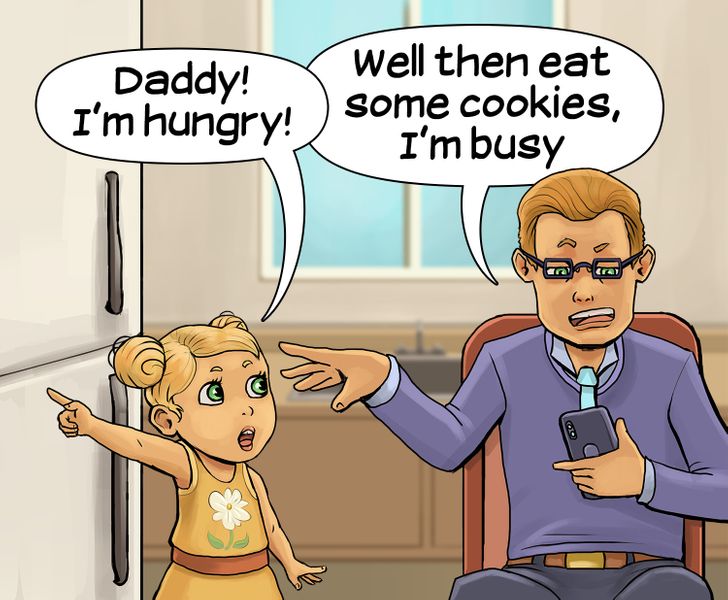
This type of attachment is undoubtedly characterized by confusion. When parents are unstable, insecure, and provide insufficient, or non-existent care to their children, a mixture between the 2 previous types is produced: anxious and avoidant.
The child learns to not trust others and even experiences fear or dread of the role models or figures that should be their protection and care providers. That, in turn, results in them developing a rather insecure personality, with a tendency toward impulsive and sometimes disproportionate reactions. All of this leads to poor emotional management and very explosive reactions. Of course, this also makes it very difficult to establish long-lasting interpersonal relationships.
What’s recommended and not recommended
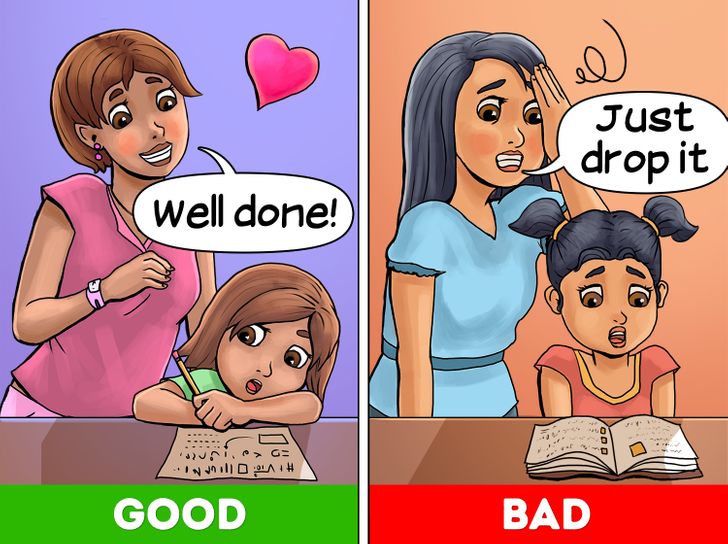
We already mentioned earlier that the most recommended and functional type of attachment is the one known as “secure attachment.” Practicing attachment and establishing a solid and close bond with our children does not mean that we are spoiling them or giving them everything they want. We are giving and providing them with emotional stability, tranquility, and security, which will not only be reflected in their childhood years, but also in their adult life. Attachment is a powerful tool if we want our children to develop their personality in an adequate way. It may help reduce the possibilities of them developing emotional problems and can help them build solid interpersonal relationships and a healthy concept of the self, and cope with acceptance of themselves.
Attachment does not mean that we have to overprotect our children to the point of not letting them explore the world. In that case we would be limiting them and making them more dependent on us. In a way, attachment is exactly the opposite of how it sounds. We are providing them with the necessary tools to be self-sufficient and have healthy relationships, without having to use fear and/or dependency as a mechanism to cope with others.
What type of attachment do you practice with your children? What type of attachment did your parents practice with you?
Comments
story
I'm definitely Secure attachment. Just had my first baba. A beautiful girly. Whom I miss so much even when I'm not in the same room as her. Thats how strong the bond is. An when she cries I'm literally running to get to her. It tugs at my heart thinking she's balling as she doesn't want to be alone, or scared, or needs comfort etc..Mommy will always answer you!.
I see it in other ppl, inc my sister with her daughter. That they're to busy on their fones nowadays, so ignore the child who calls "Mom" 10 times without an answer. I will always answer you my Trinity 💘
I had an over protective mom and that didn't really improve our relationship either, at the same time my dad never really spend much attention on me so we don't have a relationship at all kinda
Related Reads
12 Parents Who Turned Family Life Into a Bestseller Drama
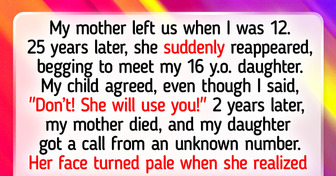
Zac Efron’s Appearance a Few Days Ago Leaves Fans Shocked and Worried

I Told My MIL She’s Not Allowed to Babysit My Child Anymore
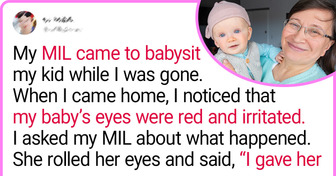
I Refuse to Pay for My Stepson’s Private School—I’m Not a Cash Cow

12 Disturbing Events That Crushed People’s Spirits

10 Real Stories Too Dramatic for Daytime TV
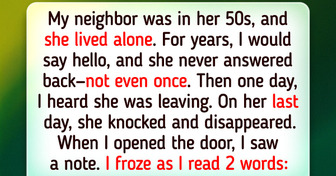
12 True Stories That Get Creepier and Creepier

I Turned My Stepdaughter’s Room Into My Gym — It’s MY House Now

What Happens If Someone Objects at Your Wedding

My MIL Called Me a Gold Digger—But My Revenge Was Served Cold
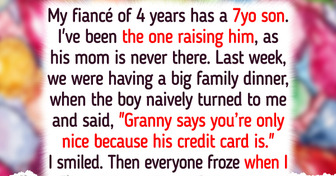
A Woman Shared Her Experience of Bleeding Freely at Her Mother-in-Law’s House but Received Mixed Online Reactions
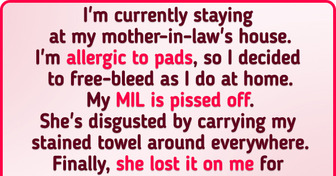
14 True Events That Made People Question Everything and Everyone
